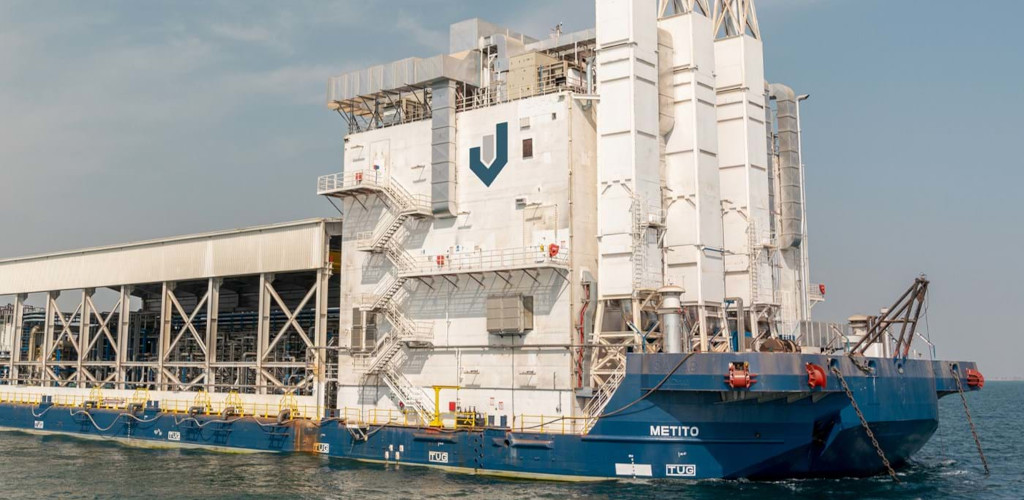Facility Is One of Three Built on Customized Barges on Saudi Arabia’s Red Sea Coast

Bahri Desalination, a division of Saudi state shipping company Bahri, has set a new Guinness record for the world’s largest floating seawater desalination plant built on a marine barge.
The 123-meter-long, 37-meter-wide plant, which can produce 50,000 cubic meters of purified water per day atop a customized flatboat, is one of three such facilities in the kingdom built by Bahri, the state-led Saline Water Conversion Corporation (SWCC), and water treatment specialist Metito Saudi.
The project, located near Al Shuqaiq port on Saudi’s Red Sea coast, deploys “industry-leading innovations” including reverse osmosis treatment, remineralization, and integrated ultrafiltration, Bahri said.
“We are honored to receive this distinction from Guinness World Records that validates our status as pioneers in engineering large-capacity, mobile seawater desalination solutions,” said Eng. Ahmed Alsubaey, CEO of Bahri.
“As a leader in transportation and logistics, Bahri strives to develop innovative water projects that strengthen Saudi Arabia’s infrastructure and self-sufficiency. This record reflects our cutting-edge work in deploying sizeable mobile floating desalination capacity where it is needed most along our coastlines.”
Saudi Arabia is one of the world’s largest water desalination markets.
The kingdom’s water consumption tops 8 million cubic meters per day, one of the highest rates in the world, according to the U.S.-Saudi Business Council. Consumption is forecast to reach 12.3 million cubic meters per day by 2040.
But arid landscape, low rainfall and a lack of lakes and rivers, along with aggressive industrialization and rapid population growth, are putting huge pressure on the country’s ability to quench its thirst.
In a bid to tackle potential resource scarcity, the SWCC, responsible for about 70 percent of the country’s desalinated water output, is spending billions of dollars on worldscale water and wastewater systems. More recently, the government has adopted public-private-partnership, or PPP models, as a procurement strategy, as the country seeks international investment and know-how to support its infrastructure plans.
Bahri is a sponsor at Breakbulk Middle East.
